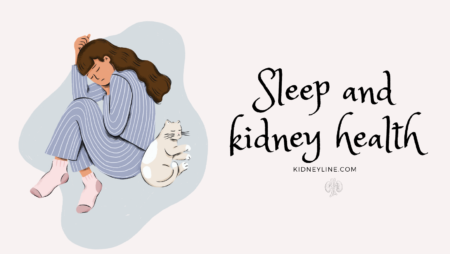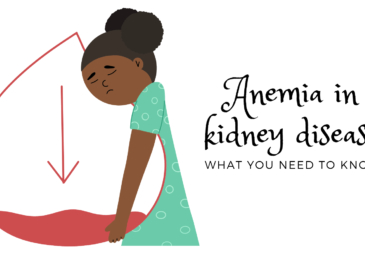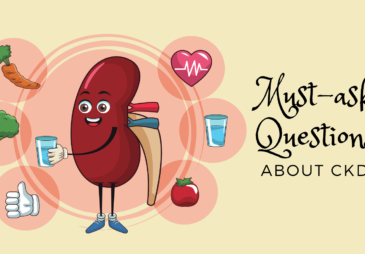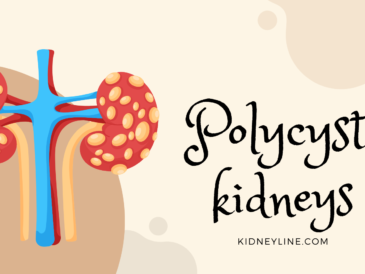There is a growing body of evidence that sleep deprivation impacts kidney health. Precisely how this happens is unknown, but several mechanisms are proposed about the role of sleep in kidney health.
Experts believe kidney function is regulated by the sleep-wake cycle. The rhythmic activity of the kidneys is demonstrated by the fact that healthy people make more urine during the day than at night. Research also shows that more electrolytes like sodium and potassium are excreted in urine during the day.
How is sleep disturbance linked to kidney disease?
Scientists say shorter sleep duration is associated with kidney dysfunction. In one study, researchers investigated the relationship between self-reported sleep duration and a decline in kidney function. They found that people who reported a sleep duration of 5 hours or less were more likely to have a rapid decline in kidney function than those who reported sleeping for 7-8 hours.
Another study looking at 432 participants demonstrated that shorter sleep duration was associated with lower kidney function.
Sleep deprivation is also linked to hypertension, a leading cause of kidney disease. Observational studies have shown a link between short sleep duration and an increased risk for hypertension. Furthermore, when researchers restricted sleep in study participants, there was an increased risk for higher blood pressure.

But how does sleep disturbance increase the risk for hypertension? During sleep, the activity in the sympathetic nervous system decreases. But sleeping less than 6 hours at night has been linked with an increased sympathetic tone and inflammation. Both factors put an individual at risk for hypertension.
Similarly, sleep deprivation is linked to weight gain and obesity, another risk factor for kidney disease, hypertension, and type 2 diabetes.
The sleep heart health study showed that people who slept for 5 hours or less were 2.5 times more likely to have type 2 DM. Diabetes is another leading cause of kidney disease.
Obstructive sleep apnea, a sleep disorder that causes low oxygen tension in the blood at night, has also been linked to kidney disease. OSA also causes hypertension.
These intertwining relationships between sleep disorders and risk factors for kidney disease, along with studies showing the relationship between sleep disturbances and kidney function, all highlight the critical role of sleep on kidney function.
Sleep and general well being
The human body works like a well-oiled machine. Events in one organ system affect other systems. To maintain healthy kidneys, the health of the whole body is important, including the heart, brain and gut.
Sleep disturbances affect the brain, gut, heart and hormones. Some of the effects of sleep disorders are
- Headache
- Poor concentration
- Depression
- Anxiety
- Substance abuse
- Stroke
- Heart attack
The far-reaching consequences of poor sleep make it important to prioritize quality sleep.
How to improve sleep
If you have difficulties sleeping, certain habits may help. The National sleep foundation recommends 7-9 hours of sleep. In these days of hustle culture, many adults are doing less than that. If you’re sleeping less than 5 hours a day, you may want to look again at what the data says.
Try sleeping at the same time of the day, even during the weekend. It’s common for people to stay up late during the weekends since they do not have to get up early to go to work. But each time you do that, it resets your sleeping pattern. By keeping to a set time, you can nudge your brain into getting ready for bed at that specified time.
Avoid taking anything that stimulates your 2-3 hours before bed. It’s probably best to avoid taking caffeine in the evening altogether. You also don’t want to pick up an exciting book hours before you get into bed. You may find it challenging to put the book down. Opt for gentle music instead.
Avoid taking your devices to bed with you. Some people recommend keeping it out of the room. But this might not be feasible for people who use sleep apps with white noise or music to fall asleep. Instead, you can turn off notifications and turn down the volume of your ringing tone.
Sleeping in the dark or with low lighting is another excellent way to fall asleep faster.
Morning exercise helps me sleep better because my body is too tired. Try it if you have trouble going to bed early.
If you have a medical condition like obstructive sleep apnea, it is important to seek medical care. There are several treatment modalities to help you.
Simply put, adequate sleep is crucial for kidney health and general well-being.




